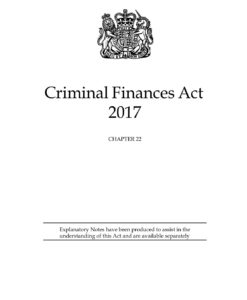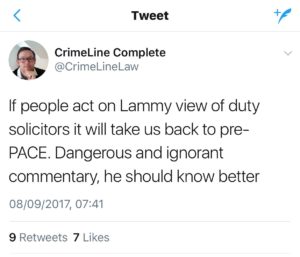Monthly Archives: September 2017
Environment Agency Clamping Down On Criminal Activity
People who illegally dump waste have cost land and property owners millions of pounds in the last year, according to the Environment Agency.
The financial impact, which relates to the cost of removing waste dumped in fields and empty commercial properties lawfully, could be even higher if land is contaminated or insurance premiums rise as a result. Dumped waste is also a major fire risk.
What is being done?
In a bid to reverse this problem, the Environment Agency is reaching out to property and land owners, commercial property agents, trade associations and local authorities. Their aim is to warn of the dangers posed by waste criminals and advise them, their clients and their members how they can better protect themselves. It is likely that this increased level of activity will lead to more criminal investigations and prosecutions.
Jamie Fletcher, from the Environment Agency said:
“Waste criminals operate throughout the country, offering to remove waste cheaply and then dumping it in fields or empty warehouses. They tend to move to new areas as enforcement agencies become wise to their activities.
We know it’s only a matter of time before they target us again so we’re sending out a strong message: Waste criminals are not welcome here and we’re doing everything in our power to deter and catch them.
We can’t do it alone.
We work closely with partners to share intelligence on illegal waste activity. And we’re encouraging everyone to do their bit: for property and land owners to be vigilant and better protect themselves and for all businesses, organisations and individuals to manage their waste responsibly, preventing it from getting into criminal hands in the first place.”
Land and property owners are advised to:
- Check any empty land and property regularly and make sure it is secure.
- Carry out rigorous checks on prospective and new tenants. Land and property owners have a responsibility to ensure anyone leasing their land/property complies with regulations. They may be committing an offence by allowing waste to be stored on land or property without the relevant permissions and could leave them liable to prosecution.
- Be vigilant and report any unusual behaviour.
Change on the roads
In a related development, the Environment Agency and Driver and Vehicle Standards Agency (DVSA) have officially agreed to carry out joint operations across England to cut the transportation of illegal waste and to improve road safety.
The memorandum of understanding will see the Environment Agency and the DVSA using their combined enforcement powers to tackle the transportation of waste to illegal or poorly-performing permitted sites.
The agreement will involve:
- DVSA staff located within Environment Agency teams to ensure a coordinated and effective approach
- sharing of information to increase the effectiveness of roadside enforcement on waste industry vehicles up and down the country
- providing enforcement teams with intelligence relating to waste industry operators
- identifying high risk or illegal goods vehicle operators involved in waste transport
- reducing the number of seriously and serially non-compliant waste industry vehicles on England’s roads.
Legal Advice for Business Defence
There are thousands of commercial properties across the Country thought to be empty, which are owned by businesses and organisations, including fund management companies and local authorities.
The Environment Agency is also advising businesses and organisations of their responsibility to ensure their waste is managed appropriately. Anyone who produces, stores and manages waste is obligated to ensure waste does not cause harm to human health or pollution to the environment under Duty of Care legislation.
Waste crime diverts as much as £1 billion per annum from legitimate business and the treasury. Since April 2011 the Environment Agency has invested £65.2 million nationally to address it. Its specialist crime unit uses intelligence to track and prosecute organised crime gangs involved in illegal waste activity and to ensure any necessary action is taken against them.
Action you need to take
Environmental crime and regulation is a specialist area of business defence law. Whether you need advice about your legal obligations, or representation if facing an investigation or prosecution, our team of lawyers is here to provide it.
The penalties in relation to environmental offences can be very high, sometimes reaching the hundreds of thousands of pounds, and in some cases resulting in imprisonment. For example, United Utilities was fined £666,000, with costs of £32,000 after pleading guilty to pollution offences at Manchester Crown Court.
Contact a Business Defence Solicitor

With cases such as this being decided against companies, you cannot afford to leave your case to chance. Please contact business defence solicitor Martin Hadley on 0115 9599550 or alternatively use the contact form below.
Contact
Monthly Archives: September 2017
High-Risk Offenders – The Hidden Peril of Drink Driving
Many people convicted of drink driving leave court with a pretty clear idea as to the length of their driving disqualification, but for a significant number, there is a shock further down the line.
Contrary to popular belief, there is no ‘right’ to hold a driving licence, merely by having passed a driving test, and not otherwise be disqualified. The Secretary of State for Transport has the right, where the circumstances justify it, to withhold a licence. One of the circumstances where this arises if after a drink drive conviction if the offender is deemed ‘high-risk’.
What is a high-risk offender?
The high-risk offender scheme applies to drivers convicted of the following:
- one disqualification for driving or being in charge of a vehicle when the level of alcohol in the body equalled or exceeded either one of these measures:
87.5 mcg per 100 ml of breath
200.0 mg per 100 ml of blood
267.5 mg per 100 ml of urine
- two disqualifications within the space of 10 years for drink-driving or being in charge of a vehicle while under the influence of alcohol
- one disqualification for refusing or failing to supply a specimen for alcohol analysis
- one disqualification for refusing to give permission for a laboratory test of a specimen of blood for alcohol analysis.
If I fall into one of those categories, what does it mean?
It means that at the end of your disqualification period, your licence will not be returned.
How do I get my licence back?
There will need to be a medical assessment of your suitability to hold a driving licence; this will consist of:
- questionnaire
- serum CDT assay
- any further testing indicated.
If a licence is awarded, the ’til 70 licence is restored for Group 1 car and motorcycle driving. Consideration may be given to a Group 2 licence.
If a high-risk offender has a previous history of alcohol dependence or persistent misuse but has satisfactory examination and blood tests, a short period licence is issued for ordinary and vocational entitlement but is dependent on their ability to meet the standards as specified.
A high-risk offender found to have a current history of alcohol misuse or dependence and/or unexplained abnormal blood test results will have the application refused.
What does this mean in practice?
You need, if you are regularly consuming large quantities of alcohol (which may be much less than you believe it to be), to reduce your intake significantly, otherwise, this pattern of alcohol abuse will reveal itself when the blood sample is analysed (for liver function markers).
I wish I had been told this at the time?
Unfortunately, our experience shows that clients are not advised of this hidden consequence of drink driving.
Is there any appeal mechanism?
Fortunately, yes there is. We have a dedicated team of road traffic experts ready and able to assist you with any drink driving query.
If you would like further advice about this topic, then please contact one of the solicitors at your local office or use the form below.
Contact
Monthly Archives: September 2017
Change Ahead
The main provisions of the Criminal Finances Act 2017 came into force on 30th September 2017, and there are some important effects that any business ought to know.
New Provisions
 While tax evasion is already an offence, currently there is no obligation on a company to take steps to stop another person engaging in such illegal activity. With a few exceptions, if you do not personally participate, you can stand idly by while another person offends. These provisions bring this situation to an end so far as certain aspects of taxation are concerned.
While tax evasion is already an offence, currently there is no obligation on a company to take steps to stop another person engaging in such illegal activity. With a few exceptions, if you do not personally participate, you can stand idly by while another person offends. These provisions bring this situation to an end so far as certain aspects of taxation are concerned.
How?
The Act will render any business (which includes partnerships) liable to prosecution if a ‘tax offence’ is committed by an employee or other person performing services for the company. This will include agents of the business.
To be guilty, the following must apply:
- There has been a criminal evasion of tax (whether that resulted in prosecution or not).
- An ‘Associated Person’ facilitated the commission of that offence (i.e. a person linked to your business).
- A failure by the firm to prevent that facilitation taking place.
The final requirement imposes a strict liability element. Those running the business need not know that anything unlawful was taking place.
The definition of ‘Associated Person’ is broad. It means: ‘…an employee, a person acting in the capacity of an agent, or any other person who performs services for or on behalf of your company who is acting in the capacity of a person performing such services’.
The provisions apply in relation to both UK and foreign offences.
Do you have a Defence?
The good news is ‘Yes’.
But only if you can prove:
(a) That you had in place such prevention procedures as it was reasonable in all the circumstances to expect you to have in place; or
(b) It was not reasonable in all the circumstances to expect you to have any prevention procedures in place.
Therefore, your business needs to have reasonable safeguards in place to be able to try and prevent tax evasion.
What is the Penalty?
Your company could face an unlimited fine.
At the moment, although there aren’t any sentencing guidelines, we can reasonably anticipate these to be very large. In some cases these will be measured in the tens of thousands of pounds and above.
Additionally, you would also need to try and measure the reputational and other damage (such as loss of future contracts) that might follow.
That Doesn’t Sound Good, What Can I Do To Protect My Company?
Your business will need to commit to policies and processes designed to prevent your employees and others committing tax facilitation offences. There is no ‘one size fits all’ policy toolkit that you can purchase off the shelf.
To devise such procedures, you will need to:
- Carry out a risk assessment.
- Decide on what is a proportionate response to that risk.
- Ensure top-level commitment within the organisation to implementing any policy/procedure.
- Maintain due diligence.
- Communicate the policy/procedures and train all employees/agents who carry out work on your behalf.
- Monitor and review the policies and procedures to ensure continued effectiveness.
We Will Certainly Put This On Our ‘To Do’ List
While HMRC doesn’t expect you to have everything in place on 30th September 2017, it does have some ‘day one’ requirements, with HMRC stating in its guidance that:
‘[We expect] there to be rapid implementation, focusing on the major risks and priorities, with a clear timeframe and implementation plan on entry into force.’
Need help?
Laws relating to business can be challenging at the best of times, but when they could also land your company before the courts and facing crippling fines, it is best to act in advance and do all you reasonably can to put protections in place.
The provisions of the Criminal Finances Act 2017 are only summarised above; it will hardly surprise you to know that they are in fact much more complex, so you should take care to understand in detail your actual obligations.
Read more about our business defence services here.
Contact us for advice

Should you wish to discuss any aspects of the Criminal Finances Act 2017 or wish specific advice then please contact partner Martin Hadley at our Nottingham office on 0115 9599550 or email him here.
Monthly Archives: September 2017
Education Law and Criminal Defence Solicitor Clare Roberts was welcomed by students at West Bridgford School on the afternoon of Monday 21 September. Following an invitation she delivered a talk about ‘Routes into Law’ to sixth form students who are contemplating studying law at university.
The talk focused on university applications including what to do if you do not get your expected grades, as well as the proposed changes in the route to qualification as a result of the proposed scrapping of the Legal Practice Course in 2020.
Clare also spoke with students about ‘a day in the life of a solicitor’ so that they had a sense of what a day at court was like, including the unpredictable hours! Further information about the unpredictable nature of the work can be found here.
The students who attended the talk had lots of questions to ask about studying law at university. Clare was also able to help with how the training within a firm thereafter will work.
Clare was really impressed with how knowledgeable the students were about their career options but also impressed by the careers education scheme run by Caroline Nolan at the school, which sees a variety of different professionals give talks to sixth form students at the school over the next few months.

It appears that the students were equally impressed by Clare, who received some positive feedback. We hope we will be able to assist this and other schools again in the future.
If you think your students might be helped by a presentation such as this one then please contact us using the form below. It is likely that we will be able to provide a solicitor local to your school or college to assist with any information you might need.
Contact
Monthly Archives: September 2017
…With the Police
Every graduate remembers Freshers week well! It is your first real taste of total freedom from your parents. You have money, friends to make and a desire to prove your drinking prowess in the form of a variety of crazy drinking games just to get accepted into the rugby, rowing or hockey club.
Ten pints in and it is suddenly fun to lie in the road, rugby tackle a few passers-by for a laugh or run naked down the street.
The problem is that whilst you are out, carelessly stumbling around, CCTV cameras in city centres are watching your every move.
Arrested during Freshers Week?
Sadly, year after year, we represent students arrested, especially during Freshers week, for offences such as assault, criminal damage or causing harassment, alarm or distress in a public place, as well as possession of an illegal drug.
It is unlikely that most first offences will result in a prison sentence. The consequences, however, of the conviction on your future career may be great. It may even affect your ability to continue with your degree where the university instigate disciplinary proceedings.
This will be more likely when you are studying a vocational degree where as part of your learning, you have contact with the public. We have represented students studying medicine or nursing degrees, where their criminal conviction has brought them before the Fitness to Practice Panel of their regulatory body.
Free and independent legal advice
If you are unfortunate enough to get arrested during your degree, remember that everyone, regardless of their financial means, is entitled to free legal representation at the police station. The cost of this advice will be paid for by legal aid. This service can be accessed 7 days a week, 24 hours a day.
If you are under investigation for a criminal offence or recently convicted AND your university is looking to bring proceedings against you, it is always worth contacting a solicitor to know and understand your rights and how best to proceed.
Contact a criminal law specialist
A specialist lawyer can be contacted through any of our office numbers at any time of the day or night to provide you with free and independent legal advice at the police station.
People being spoken to by the police for the first time might not think that they need a lawyer. Speaking without one would be a mistake.
Here are 10 good reasons why you will want to take advantage of our advice.
Details of your nearest office can be found here.

Alternatively you can use the contact form below.
Contact
Monthly Archives: September 2017
Magistrates should be able to jail offenders for up to a year, the lord chief justice has said.
Lord Thomas of Cwmgiedd said that it was a “good time” to grapple with the issue because it was unlikely to cause problems with increased prison numbers.
“We do have a serious problem with those sentenced long-term,” he said. “But there is not a problem with that part [short-term prisoners] of the prison population.” Lord Thomas was speaking as he formally opened the new premises of the Magistrates’ Association in Vauxhall, south London, last week.
Magistrates can currently hand out sentences up to six months in length. Doubling the limit would mean more than 10,000 cases being tried by magistrates rather than the crown court, leading to estimated savings of up to £40 million a year.
About 85,000 people are in prison in England and Wales, which Lord Thomas has described as a “very, very high” number. He told MPs last autumn that more could be done to explore keeping offenders out of jail, including the use of “very tough non-custodial penalties”.
For years magistrates have been calling for increased sentencing powers, but ministers have resisted because of fears that it would swell prison numbers. However, magistrates insist that in a “worst case scenario” the rise in inmates would be no more than 1,000 a year.
Trials in the crown court cost £3,400 a day compared with £900 for those tried in magistrates’ courts. Magistrates say that if an estimated 5,514 contested trials and 5,329 guilty pleas that require sentencing were handled by magistrates, there would be a saving in total costs of £30-£40 million.
Malcolm Richardson, national chairman of the Magistrates Association (MA), said that the reform could “be done quickly, without the need for primary legislation.”
He added that it “would enable more cases to remain in the Magistrates’ court, ensuring that cases are dealt with more quickly and reducing pressure on crown courts. Giving magistrates the power to sentence for up to 12 months would make for swifter, more efficient and more local justice and should be implemented without further delay.”
This content is from The Brief newsletter. You can sign up for it here.
Monthly Archives: September 2017
Nottingham crime and duty solicitor Jameel Malik represented a client who had been arrested of intentionally supplying a psychoactive substance into prison. The recipient of the drugs was said to be her son in HMP Nottingham.
Supply of a psychoactive substance?
Following a prison visit from his mother, our client’s son had been randomly selected for a search. He was wearing two pairs of boxer shorts and was in possession of green vegetable matter.
Once forensically examined, this was found to be a psychoactive substance with a weight of 103g. The value of the substance if sold in prison by the gram was a little over £10 000.
Free and independent legal advice in police interview
 Jameel had first met his client in the police station when she had requested the free and independent legal advice of the duty solicitor. She had given an account to the police in interview denying passing her son the psychoactive substance. She did accept that she might have passed him a note or a bar of chocolate.
Jameel had first met his client in the police station when she had requested the free and independent legal advice of the duty solicitor. She had given an account to the police in interview denying passing her son the psychoactive substance. She did accept that she might have passed him a note or a bar of chocolate.
CCTV footage of the prison visit was produced by the police in interview. This showed his client and her partner in the visiting hall. Both sat down at the table with our client’s son. The CCTV footage clearly showed Jameel’s client pass something to her son who then placed two packages in his boxer shorts.
Proceedings at Nottingham Magistrates’ Court

Our client was charged with supplying a psychoactive substance. The issue for trial was whether she had passed her son the substance during the visit.
Jameel provided advice about whether the case ought to remain in the Magistrates’ Court or be allocated to the Crown Court. He successfully argued that trial could be dealt with before the Magistrates’ Court.
The matter proceeded to trial. The CCTV footage was played. Agreed evidence was read as to how the prison officers had retrieved the psychoactive substance. The expert report proving the nature of the substance was also read, as were procedural issues relating to visitor searches. Finally, our client’s interview with her denials were read out.
Submission of no case to answer
Having considered the evidence, Jameel then decided that it was appropriate to make a submission that there was insufficient evidence to allow the case to proceed.
He argued that even taking the prosecution case at its highest there was simply insufficient evidence to show that it was his client who had supplied the substance to her son.
He highlighted the following:
- the amount of the substance was of significant size. This was not discovered upon his client’s entry into the prison
- the CCTV footage did not show what was passed
- his search was actually two hours after the visit rather than immediately after the visit had taken place
- there was a significant opportunity for the substance to have been acquired at another time during the morning.
Case dismissed
The Magistrates retired to consider the submission. Upon their return they stated that they did not believe that the prosecution had sufficient evidence to provide a case for Jameel’s client to answer. The case was dismissed.
Instruct a criminal solicitor in Nottingham
If you are investigated for an offence then you will want to instruct a firm of solicitors that will try and provide you with continuity of representation between your initial arrest and final disposal in the Magistrates’ court.
We will try to make sure that you keep the same solicitor throughout your case to avoid you seeing a number of new faces and having to explain your account on more than one occasion.

Don’t forget that our independent advice and representation in the police station will always be free of charge, and you may be entitled to free Magistrates’ Court representation under our legal aid contracts.
If you want to instruct Jameel in a case then please call him on 0115 9599550 or use the contact form below.
Monthly Archives: September 2017
Majority of rape case juries reach guilty verdict before deliberation
Nearly half of all juries in rape cases come to a guilty verdict before they retire to the jury room to deliberate, research shows.
The study found that 43 per cent of jurors came to their decision in advance, with the figure as high as 83 per cent if they themselves had been the victim of a sexual assault. However, the jury room deliberations did have an impact, with 13 per cent changing their minds after discussion with fellow jurors.
The research also showed that a juror’s educational background had significant implications for verdicts. Those who never made it to degree level were more likely to vote “not guilty” because of an increased tendency to hold more sexually aggressive attitudes.
Mock rape trials used in study
The study was conducted by the University of Huddersfield with legal advice and support from St Johns Buildings, the Manchester barristers’ chambers, using mock trials. The findings may increase calls for jurors in the UK to be screened for pre-conceived bias before being selected, particularly in rape trials, the researchers said.
Ministry of Justice statistics from 2015 reveal that just 1,297 convictions of sexual offences were secured, representing less than four per cent of all cases recorded by police over the 12 months.
Dominic Willmott, a researcher at Huddersfield University and lecturer in forensic psychology at Leeds Trinity University, said that the research demonstrated “that for all the best efforts of the courts, juries are not necessarily offering a fair and impartial assessment of the evidence, particularly within rape cases.
Demographic and personal attitudes key
“Past experiences play a huge role in shaping the person you are, and inevitably affects your view on society. As well as the importance of demographic features of the jurors, attitudes towards rape were found to be the strongest predictor of high numbers of not guilty verdicts.”
Nigel Booth, a barrister at St John’s Buildings, played the role of the judge, with other barristers acting for the prosecution and defence.
The content is from The Brief newsletter. You can sign up here.
Monthly Archives: September 2017
Today has seem the publication of the Lammy Review. This is the result of an independent enquiry overseen by David Lammy MP into the treatment of, and outcomes for, Black, Asian and Minority Ethnic (BAME) individuals in the Criminal Justice System.
The need for a review arose because of concerns such as despite making up just 14% of the population, BAME men and women make up 25% of prisoners. Over 40% of young people in custody are from BAME backgrounds.
It is clear that there are very real problems in the justice system as it impacts on those BAME individuals caught up in the system.
Many sensible suggestions in the Lammy Review
Many of the suggestions within the Lammy Review, while clearly sensible, will require more money and resources in the short to medium term, but could deliver both financial savings and savings in terms of wasted lives later on.
To bring in the proposals, aside from the money, there will need to be a change in mind set from politicians. This will have to be coupled with an intention to ‘do the right thing’ and not allow justice policy to be dictated by the tabloid press.
Proposals such as increased diversity in the make-up of Magistrates, deferred prosecutions allowing earlier structured intervention from agencies or the idea of a person’s criminal record being ‘sealed’ following a demonstration that a criminal history is in the past all seem reasonable changes to make.
Missed opportunity to challenge pre-conceptions?
The Lammy Review identifies that many of the problems that arise are due to the perceptions that BAME individuals may hold about the fairness of the system. The report identifies a lack of trust in legal aid-funded solicitors among both White and BAME offenders as a particular problem.
When spoken to. many questioned the motives of the legal aid solicitors, who were often viewed as representing ‘the system’ rather than their clients’ interests. Offenders commonly believed that solicitors did not have the time or the capacity to advise them effectively in any case.
For example, one prisoner comments “I mean, obviously they don’t really care: they’re duty, they’re working for the police as well.”
 A second prisoner confirmed, “I’ve spoken to a lot of people where they have had situations where it almost feels like the duty legal team has taken the opportunity to go to trial, when the individual would have been much better off pleading guilty, the odds were stacked against them, but from a solicitor’s point of view there’s obviously financial benefit for them to continue to trial.”
A second prisoner confirmed, “I’ve spoken to a lot of people where they have had situations where it almost feels like the duty legal team has taken the opportunity to go to trial, when the individual would have been much better off pleading guilty, the odds were stacked against them, but from a solicitor’s point of view there’s obviously financial benefit for them to continue to trial.”
 It is unclear whether any attempts were made to correct the perceptions held by these commentators. It is certainly dangerous to let the views go unchallenged. The ultimate, and perhaps unintended, effect may well be to deter people of whatever background in seeking legal advice during the investigation of an offence.
It is unclear whether any attempts were made to correct the perceptions held by these commentators. It is certainly dangerous to let the views go unchallenged. The ultimate, and perhaps unintended, effect may well be to deter people of whatever background in seeking legal advice during the investigation of an offence.
The Lammy Review would certainly have had an opportunity to comment on whether the views were reasonably held, but seems to have declined to comment one way or another. In relation to particular cases, authority could have been sought to seek the solicitor’s file to see what advice had been given and why. This could have ensured a proper evidential base to support or refute the perceptions.
Lack of action from the Law Society?
Concerns have been expressed that The Law Society fails to promote the services of criminal solicitors in the same way that they endlessly promote family law, wills and conveyancing. The ability to instruct a solicitor to advise a person in the police station is an important right. The Law Society must have an important role in public legal education.
It appears that the burden of such education might fall to individual criminal solicitors. Coincidentally I published an article here earlier this week. Some of the content could be adapted and used locally by practitioners to try and alter damaging perceptions.
 An opportunity to stress the independence of criminal solicitors
An opportunity to stress the independence of criminal solicitors
Criminal legal aid solicitors should use this opportunity to stress that although we are paid by the Government, the free advice and representation that we give is entirely independent of the Government.
Although it is the police who will call us if a suspect is detained in a police station, the free advice and representation that we give is entirely independent of the police. Although it is the Legal Aid Agency that regulates which firms can hold a legal aid contract, the approval of who can act as a duty solicitor is entirely independent of that Agency.
The advantages of instructing a solicitor to advice you in the police station can be found here.
Our professional duty is to our clients, not the Ministry of Justice. This involves a duty to give advice that they need to make the right decisions in their case. It includes a duty of confidentiality. Unless instructed to do so by a client, our advice and their instructions will remain confidential even after the case has ended.
Can legal aid solicitors do more?
As part of a process to change perceptions, legal aid solicitors should share accounts of the work that they undertake and the difference that they can make to their clients’ situation. We publish such accounts on our website. With one or two exceptions, none of the cases are unusual. They hopefully demonstrate the value to  clients of instructing an expert in criminal law throughout the lifetime of a criminal case.
clients of instructing an expert in criminal law throughout the lifetime of a criminal case.
This content can be found here.
The Lammy Review should be taken as an opportunity for criminal legal aid solicitors and their representative bodies to show the work that we do and stress the positive outcomes that we achieve. This, and the positive experiences of our clients, will be the way to correct the false perceptions reported.
Monthly Archives: September 2017
People appear reluctant to seek advice for a police interview. Why?
You should always ask for VHS Fletchers in police interview because…
We are free.
 No matter what time of the day or night, or how long a solicitor has to spend providing you with expert advice and assistance, our services will be free to you as we hold a legal aid contract with the government.
No matter what time of the day or night, or how long a solicitor has to spend providing you with expert advice and assistance, our services will be free to you as we hold a legal aid contract with the government.
The government recognises that the last thing a person will want to think about when detained by the police under investigation will be whether they can afford to be represented.
You don’t need to worry about that. Ever.
What other reason could you need?
We don’t mind being woken up.
Well, not really.
It is part of a criminal legal aid solicitors job to answer the phone in the middle of the night to give advice, and attend the police station where necessary.
VHS Fletchers is large enough to ensure that solicitors have a break from being on call. We also have the staff to make sure that a member of the firm deals with your case rather than pass your case to an agent.
It is one of your rights so you should use it.
You have the right to legal advice so it must be important. Make sure you exercise that right.
We are experts in the field of criminal law.
 It is perhaps unlikely that you will have a knowledge of police practices, court procedure, rules of evidence and criminal charges. Our solicitors do. A person wouldn’t be shy about consulting a dentist, plumber or accountant depending on need. Why be shy about instructing a free solicitor in the middle of the night?
It is perhaps unlikely that you will have a knowledge of police practices, court procedure, rules of evidence and criminal charges. Our solicitors do. A person wouldn’t be shy about consulting a dentist, plumber or accountant depending on need. Why be shy about instructing a free solicitor in the middle of the night?
Even if you haven’t done anything wrong we can help you.
Choosing to have a solicitor doesn’t make you look guilty to the police. Choosing not to have a solicitor might make you a push over in terms of how the police deal with your case.
Why would you choose to go into the alien environment of a police custody suite or interview without the benefit of a trained expert in the field of criminal law?
If you haven’t done anything wrong, you might still struggle to explain yourself in the pressure of a police interview. Our presence and advice will help with that pressure.
We are entirely independent of the police.
Although we have a legal aid contract with the government, we are entirely independent of the police and the courts. You are our client, and the free advice and assistance that we give will be to help you.
…Because it is never a ‘quick chat’, despite what the police say
The only reason you are being interviewed is because the police suspect your involvement in a criminal offence. Any ‘quick chat’ is to investigate that. The outcome of the chat might be a police caution, or a charge for a serious offence, with serious consequences for your future.
We won’t delay your release.
The time that you are detained in the police station is entirely down to the police. During normal office hours, we have a number of solicitors and accredited representatives who are available to attend the police station at short notice to provide you with free advice and assistance.
Out of hours VHS Fletchers operate an on-call rota system where we have four staff members on call at any one time, and the ability to call on more representatives to assist if need be.
If you are arrested further afield then we will ensure that you are represented by a solicitor who can help you immediately without causing delay.
We know that you will want to be released from the police station as soon as possible, and wouldn’t wish to delay that process. The police, on the other hand, often pass an investigation from officer to officer due to changing shifts or due to how they wish to organise themselves. It is likely to be this, and any investigation they are carrying out, that will cause delay.
If you are charged then what happened at the police station is likely to be very important to your case.
If your case comes before the court then your police interview is likely to be important, particularly if you are having a trial. It is likely to help you if you have given thoughtful and considered responses to police questioning having had an opportunity to discuss the evidence first.
It might be that you have chosen not to answer police questions. This could be because the police have insufficient evidence when you are interviewed. If the evidence is then forthcoming, your solicitor could attend court to tell a jury about the account you gave in private consultation where this is the same as the defence you give in court.
We will give you time to think.
In nearly all cases the police will tell us some information about your case in advance. This may include the names of any witnesses and what they say happened. It can include forensic or telephone evidence. We may have the opportunity of viewing CCTV evidence.
Your legal representative will then have an opportunity to speak with you about the information disclosed and take your instructions. You will receive advice about what the evidence shows and whether you ought to give your account to the police.
It is only when you and your solicitor are happy that you are in a position to be interviewed will the interview take place. Should you need to discuss any aspect of your case during interview then you will be able to request that the interview be stopped for a further consultation.
Your solicitor might notice a point of evidence in police interview that you need to provide instructions on. In that case, they can request that the interview be stopped.
Without a solicitor, the police will not provide you with the evidence in advance and you will have to make your decision whether, and how, to answer questions during the interview. In those circumstances, it might be difficult to give your best account.
We can negotiate with the police on your behalf.
A solicitor will be important in negotiations for many reasons following police interview. You might feel you need medical attention. Perhaps the police need pointing in the right direction in terms of the investigation. There might be a compelling need for your release.
It might be argued that there is insufficient evidence to charge you with an offence. Alternatively, where the police are thinking of charging a serious offence we will have the opportunity to suggest less serious offences.
The police may want to keep you for court to seek a remand into prison custody. We can suggest bail conditions on your behalf at the police station.
Alternatives to charge might be appropriate such as a police caution or a restorative justice measure. Again, we will argue for this on your behalf.
We are free, we are experts and we are on your side.
Make sure you call us, day or night.
Find you nearest office here.
Alternatively use the contact form below:


